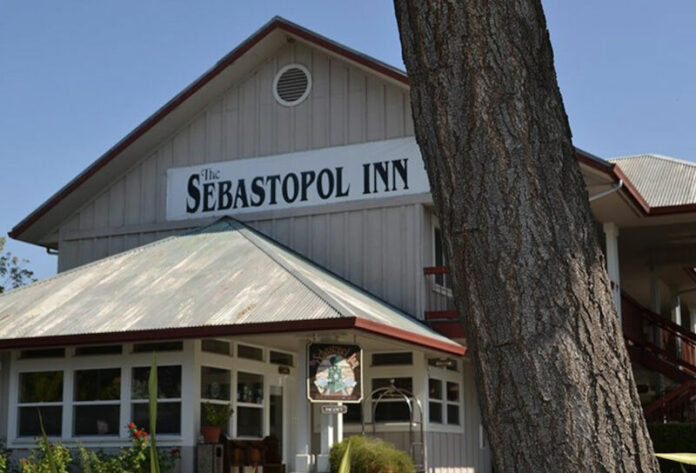After being in limbo on a state waitlist for funding, the county has received $6.375 million in funding from the state’s Project Homekey program to purchase the Sebastopol Inn to provide supportive housing for the homeless.
Once purchased, the Sebastopol Inn would provide 31 newly remodeled rooms as permanent supportive housing units in central Sebastopol, accommodating 31 or more individuals.
Gov. Gavin Newsom created the Project Homekey program to fund city and county efforts to purchase hotels, motels and vacant apartment buildings to develop into permanent housing for homeless Californians vulnerable to COVID-19, according to his office.
The county’s proposal to purchase the inn has already been approved by the board of supervisors and was sitting in limbo while officials waited for it to move off of the state’s waitlist.
According to an announcement from the county about the funding, Sonoma County will now proceed to move forward with the purchase of the inn located at 6751 Sebastopol Road for the budgeted amount of $6.375 million in funds supplied by the state through the Project Homekey program. The total cost for the Sebastopol Inn to be used as interim housing is $10.85 million including acquisition, development and operating funds.
This marks the second Sonoma County proposal to receive state funding through Project Homekey. The board of supervisors in July approved a plan to purchase the 44-room Hotel Azura in downtown Santa Rosa using $7.95 million in state funding.
“When the governor put up this money back in the summer and challenged counties to come forward with proposals to convert hotels to permanent supportive housing, we dreamed big and came up with two proposals,” said Supervisor Susan Gorin, chair of the board of supervisors. “We couldn’t be prouder of the fact that we’re now one of the only counties in the state to have more than one project approved.”
According to a press release from the county announcing the funding, the inn will be remodeled to provide permanent housing for vulnerable people experiencing homelessness.
“The acquisition of the Sebastopol Inn is important as the county works hard to provide permanent supportive housing available throughout the county,” said Interim Executive Director of the Community Development Commission Barbie Robinson in a statement.
During a board of supervisors meeting on Nov. 10, Robinson said that such units in the county are important, especially given the reduced housing from years of wildfires.
“These units are more important than ever given COVID, as well as the wildfires over the past few years, which has reduced our available housing available for sheltering our homeless individuals,” Robinson said.
The opportunity for permanent supportive housing in Sebastopol wanes as the county continues to face a lack of affordable housing, which has continued to worsen since the wildfires in 2017 and most recently this August when the Walbridge Fire struck west county.
Sonoma County has the fourth largest homeless population for large suburban areas in the U.S., the county’s Project Homekey webpage says.
During the Nov. 10 board meeting, Sonoma County 5th District Supervisor Lynda Hopkins said there is always overwhelming community concern and often opposition when homeless services arise.
“But at the end of the day, everyone does want to solve homelessness and they have to solve it somewhere. And that involves folks actually stepping up and instead of saying, ‘Not in my backyard,’ saying, ‘Yes, in my backyard, yes in everyone’s backyard, we all need to be a part of this solution,’” Hopkins said.
Individuals housed at the Sebastopol Inn and Hotel Azura will participate in the county’s ACCESS (Accessing Coordinated Care to Empower Self Sufficiency) Initiative.
The ACCESS Initiative provides individualized, integrated services to individuals experiencing homelessness based on their needs,” the county’s announcement states. “These services span county and community programs to provide wraparound and holistic care and interventions, which are critical to improving individuals’ well-being and self-sufficiency. Services include primary healthcare, behavioral health services, economic assistance, food assistance, employment training and other services. These resources and services are key determinants of successful housing placement and the permanency of these placements.”









